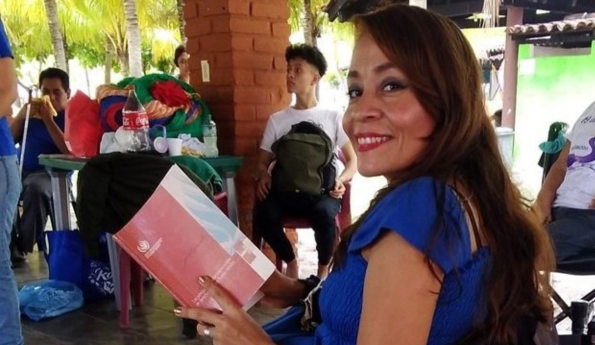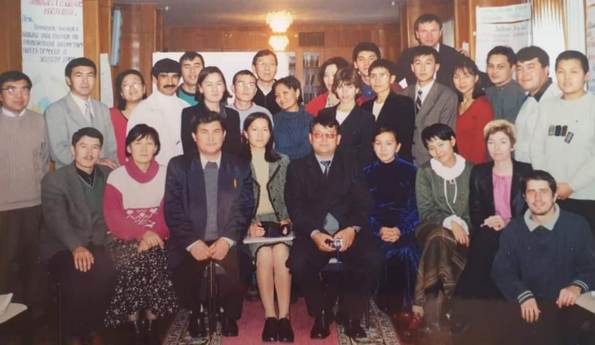By Joan Parker, President and CEO
I recently returned from Malawi in southern Africa, where I met with the local leaders of our 27 Supporting the Efforts of Partners (STEPS) organizations. Since our founding 52 years ago, Counterpart International has collaborated with local organizations, like those in the STEPS network, who are permanently in place to improve lives and reduce poverty in their communities and country.
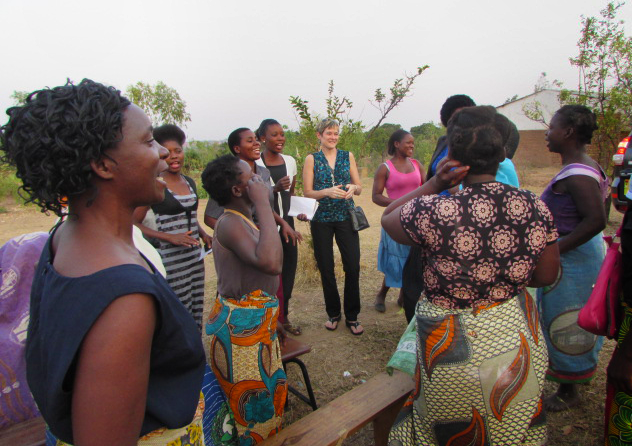
Joan Parker joins members of the CRECCOM organization, a STEPS partner, on her trip to Malawi.
Every one of our partners shared a story of their evolution thanks to the STEPS program: how their new skills and capabilities have led to changes and improvements in their programs, and what that means for the communities they serve. To get a closer look, I traveled with two of our STEPS partners to meet members of remote communities they serve. That is where their work translates into real impact in people’s lives.
Let me share the story of one of those partners: the Palliative Care Association of Malawi (PACAM). We traveled to Mpenda, near Blantyre, where we met with representatives of 40 village HIV/AIDS Support Groups – an emerging community network organized by each village that has brought together 1,000 individuals living with HIV/AIDS – all organized and supported by PACAM. As we arrived, hundreds of participants greeted us, ready to tell their stories of living with HIV/AIDS and returning to health thanks to their village HIV/AIDS Support Group. This is where I heard Cosmas’ story.
“Should I go to school or to the clinic?”
Cosmas Tande was the only teenager among the hundreds of adults. He shyly introduced himself, then found it difficult to continue speaking. An adult coaxed him on, reminding Cosmas that he had something important to share that others needed to hear. Slowly, Cosmas started talking again.
“I want to go to school,” Cosmas said. “But, I also need my medication.”
He explained that the only time the clinic was open for him to get the Anti-Retroviral Therapy (ART) medication he needed to stay healthy was during school hours. Cosmas asked his support group, “Should I go to school or to the clinic?”
After Cosmas voiced his concern, community leaders asked the local health clinic to extend their hours to ensure more youth with HIV/AIDS could receive their medications without having to miss school. The clinic agreed. Now Cosmas and his classmates with HIV/AIDS don’t have to choose between leading a healthy life on ARTs or completing their education.
Not only do the HIV/AIDS Support Groups advocate on behalf of their members, they also encourage neighbors to test, to adhere to their treatment regime, to eat healthy foods, and to reduce risky behaviors. Together, the PACAM health facilities and the village Support Groups form a medical and social safety net that helps more than 1,000 people with HIV/AIDS to live healthier lives in rural Malawi. As another signal of their impact, newborns of Support Group members have a 50% lower rate of HIV infection both at birth and at age one. Recognizing that HIV/AIDS remains the leading cause of death in Malawi, dramatically reducing its spread to the next generation can change a community’s future.
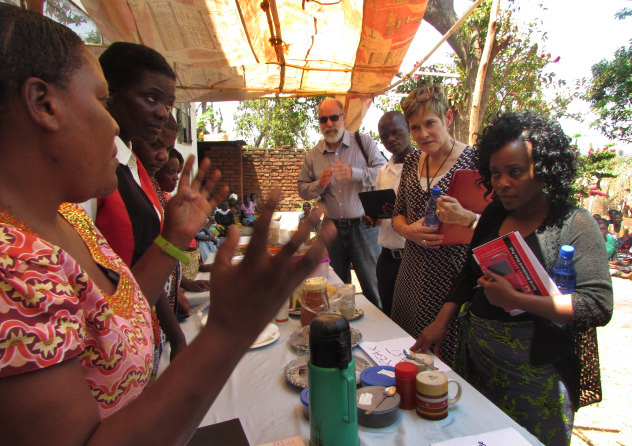
PACAM members share program benefits with Counterpart team.
The Larger STEPS Network
PACAM is only one of 27 organizations in the STEPS network. In fact, every one of the STEPS partners has a powerful platform in the issue they address. For example:
- The Federation of Disability Organizations in Malawi (FEDOMA) is a network of seven disability organizations providing a unified voice for people with disabilities across the country.
- The Centre for Environmental Policy and Advocacy (CEPA) builds community economic, social, and physical resilience to climate change.
- The Malawi Human Rights Youth Network (MHRYN) manages a national network of 55 organizations empowering youth across the country.
As these organizations go through their organizational strengthening process, it directly translates to stronger service to their members – whether individual communities or other Malawian NGOs.
The STEPS annual meeting was a moment for this remarkable community to assess, share, and discover how new strengths of STEPS members can be harvested for the good of all. It reminded me of the way we all learn: first we LEARN it – then we DO it – then we TEACH it – then we KNOW it. In short, STEPS members are now at the “Teach It” stage.
STEPS is ready to transition from external training to peer-to-peer learning, and plans to create a peer-to-peer learning platform in 2018. I look forward to returning to Malawi in 2019 to see the results of their coaching, sharing, and learning from each other. In short, the social sector in Malawi is on the move, led by 27 outstanding organizations with vision, strength, and great partners to help them along in their journey.
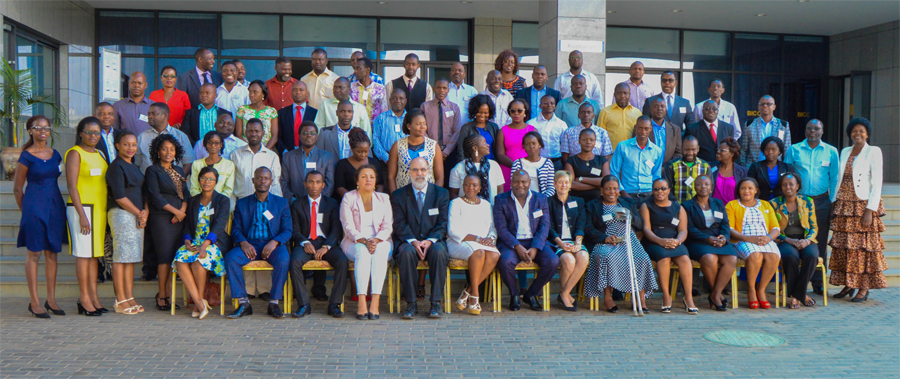
Leaders of the Malawi civil society organizations together make up the peer-to-peer Supporting the Efforts of Partners (STEPS) network.
In partnership for results that last
For me, this visit has reaffirmed Counterpart’s purpose. At Counterpart, we exist to help our local partners succeed in achieving their unique mission. That purpose was evident in everything I witnessed on this trip. Only by empowering local leaders and organizations to be transformative in their own communities will social change be achieved – and sustained.



